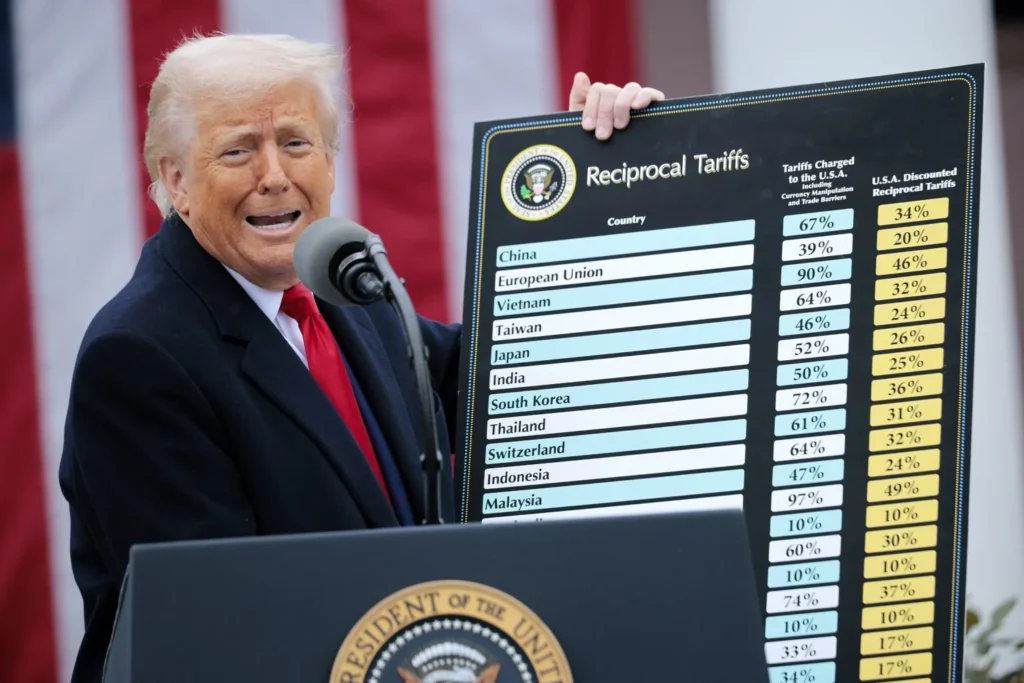Rabat-die European stock markets crashed on Monday and were confronted before their worst day since Covid-19’s outbreak in March 2020. After growing fears of inflation and an deteriorating global economy, investors have hurried to sell shares.
The panic followed new trade tariffs, which was announced by US President Donald Trump, which is now causing a global market depression.
The Euro Stoxx 50 Index fell 6% in early morning trade, with the total losses reaching 14% in the past three days. The wider Stoxx 600 dropped by 5.7%. Germany’s Dax was the hardest and fell by 7.2%-the worst session since March 2020. Other important drops were Italy’s FTSE MIB (-6.5%) and Spain’s IBEX 35 (-6%).
The markets in Asia also crashed. Hong Kong’s Hang Seng Index fell by 13%overnight, the worst one-day decline since the handover of 1997. Japan’s Nikkei fell by 8.6%and China’s Shanghai Composite fell 7%.
The sale started after Donald Trump announced New tariffs for Chinese and European products. This includes a tariff of 34% on Chinese imports and an additional 20% for goods from the European Union. These movements rise to previous tariffs.
Trump defended the tariffs and called them a way to fix “massive financial deficits” and to say that the income from tariffs was “a nice thing to see”.
He claims that the “mutual” tariff policy is supposed to create a fair trading system and ensure that US companies are not partially disadvantage.
European leaders are already planning how to react. Spanish Minister of Economy Carlos Cuerpo said Europe had “the necessary instruments” for retaliation.
At the same time, Jerome Powell, Chair of the US Federal Reserve, warned that the tariffs could cause the economy to “larger than expected” damage. He also said that the federal government does not plan to reduce interest rates soon.
Bank shares were among the greatest losers. Spain’s Banco Sabadell fell by 10%, Raiffeisen Bank in Romania lost 9.2%and the Netherlands Inging by 8.6%. Other banks, including Commerzbank, Caixabank and Intesa Sanpaolo, also suffered great losses.
Industrial companies were also hit hard. German weapons and vehicle manufacturers Rheinmetall AG lost 15.3%, while the engine manufacturer MTU Aero and the steel giant Thyssenkrupp both decreased by almost 10%. Big names such as Airbus, Siemens Energy and Heidelbergcement also saw strong declines.
Luxury brands that depend heavily on global trade have not been spared. Kering fell by almost 10%, while Richemont, Burberry and Hermès also fell strongly.





